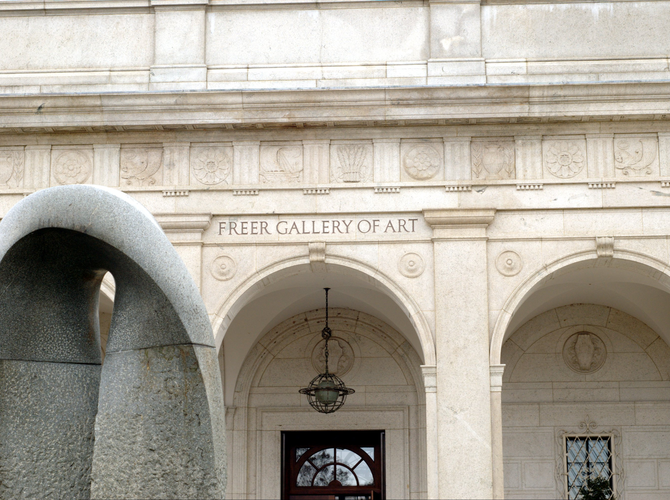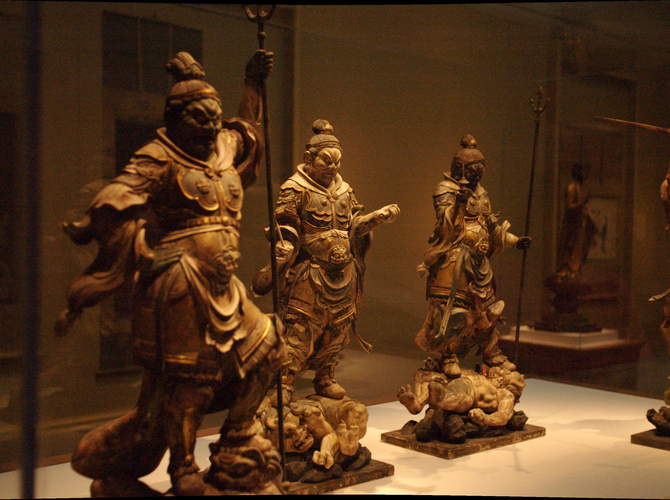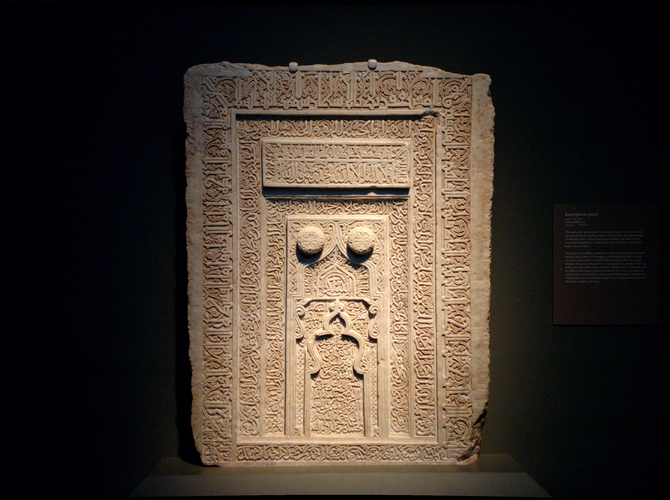Freer Gallery of Art
What is the Freer Gallery of Art?
The Smithsonian Institution's Freer Gallery of art is home to part of the institution's collection of Asian art. The gallery is located on the National Mall, and featurs paintings, sculptures, and ther artistic objects from Asian, Middle Eastern, and American artists. An addition to the 26,000 object Freer collection, the facility is connected to the Arthur M. Sackler Gallery underground, which completes the institution's Asian collections. The National Museum of African Art and S. Dillon Ripley Center are also connected underground.
What Exhibits are at the Freer Gallery of Art?
The museum features several exhibits on display indefinitely:
-
Freer & Whistler: Points of Contact: The Freer gallery collection contains a large amount of artwork by James McNeill Whistler, an American artist for whom collector Charles Lang Freer had a particular affinity. The paintings on display convey both western and Asian styles and traditions, but as works stand apart from the mostly Asian sourced collecion of artwork in the gallery.
-
The Nile and Ancient Egypt: Wood, glass, and stone artwork influenced by the magisty of the Nile River, which had great impact on the lives of ancient Egypt.
-
Arts of the Islamic World: Works across three types of media - architecture, book, and object - from the 9th to 17th centry. These items come from cultures influenced by Islam, including Iran, Iraq, Syria, Egypt, North Africa, Turkey, Afghanistan, and Uzbekistan.
-
Ancient Chinese Jades and Bronzes: The Freer collection offers one of the most impressive collections of Chinese jade and bronze artwork outside of China. Over 100 of these ancient artifacts are on display on two galleries.
-
Chinese Ceramics: 10th-13th Century: The gallery offers two dozen ceramic containers crafted during the Song dynasty.
-
Promise of Paradise: Early Chinese Buddhist Sculpture: Buddhism greatly influenced Chinese artwork as it spread across the region. The exhibit featurs scultpures from that period.
-
Silk Road Luxuries from China: Trade from Asia toward Europe long traveled along the Silk Road, a network of outpusts across the deserts of centeral Asia which would deliver carivans of goods from eastern Asia to the Mediteranian.
-
Japanese Screens: The Freer Gallery's collection of nearly two hundred Japanese screens showcases an intricate artwork which greatly represents the culture of Japan, and its unique artistic style.
-
The Religious Art of Japan: Japanese religion has been largely influenced by Buddhism, and the native Shinto belief system. These blended to create a unique artistic style on display in this exhibit.
-
Cranes and Clouds: The Korean Art of Ceramic Inlay: This exhibit features Korean ceramic artwork known as sanggam. Intricatly decorated bowles and dishes are featured, showing off this Korean style.
-
Arts of the Indian Subcontinent and the Himalayas: The Freer collection of artifacts and artwork from the Indian subcontinent and the Himalayian region contains Buddhist, Jain, Hindu, and Islamic works. Artwork focused around Buddhism traces the image and interpretation of the Buddha across Nepal, Tibet, Southeast Asia, and China.
The museum also runs special exhibitions throughout the year. For a current listing, see the museum's listing of current exhibitions
When is the Freer Gallery of Art Open?
- The Freer Gallery of Art is open daily from 10 a.m. to 5:30 p.m.
- Closed December 25.
Where is the Freer Gallery of Art?
The Freer Gallery of Art is located on the National Mall, next to the Smithsonian Institute Building (The Castle) and the Enid A. Haupt Garden. The museum is connected to the Arthur M. Sackler Gallery, National Museum of African Art, and S. Dillon Ripley Center underground.
What metro station is closest to the Freer Gallery of Art?
Two metro stops are located nearby:
- Smithsonian Station (Orange Line, Blue Line)
- L'Enfant Station (Green Line, Yellow Line, Orange Line, Blue Line)
What does it cost to visit the Freer Gallery of Art?
As with other Smithsonian Institution museums and galleries, there is no cost for admission to the Freer Gallery of Art.
Where can I learn more about the Freer Gallery of Art?
Learn more at http://www.asia.si.edu/.


